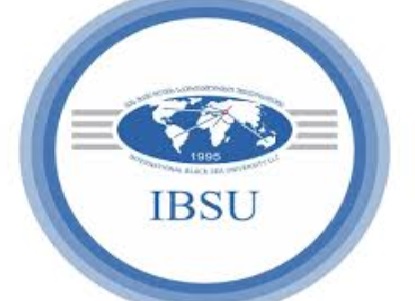Decision made in relation to IBSU is the continuation of a tendency of rights violations towards Chaglar educational institutions
August 24, 2018

We would like to react to the decision of the authorization council regarding restriction of admissions to International Black Sea University (IBSU) for a one-year term, which illustrates the tendency of rights violations and restrictions towards Chaglar network of educational institutions and is another act of ignorance and rights violations due to alleged political loyalty of Georgia to a neighboring country.
According to available information, in April of 24-27 a group of experts visited International Black Sea University in the framework of authorization procedures. Experts positively assessed observance of authorization standards based on analysis of university self-evaluation forms and documentation and during the session of August 20 rendered the decision on granting authorization, however, the right to admit students was restricted for a one-year term. According to the Council explanation, this was related to financial problems of the university, namely tax fine imposed in 2013 and frozen property, due to alleged evasion of tax liabilities. According to explanation provided by the university, the authorization council, when it was deciding the issue, did not consider the circumstance that the legal dispute regarding the lawfulness of imposing the tax fine had not finished yet.
Although the university still has not been provided with the reasoned decision of the Council and official substantiation and legal grounds of the decision are still unknown, the official assessment by the authority raises legitimate concerns regarding the objectivity of the said decision. According to legislation, the Council, in the framework of the authorization process, has power to render a decision on restriction of admission to a higher educational institution for no less than a year, in case the institution is assessed to have “partly complied with standard requirements”.
In the given case, the Council regarded the financial dispute with the state as breach of the standard related to material, informational and financial resources, which according to the explanation provided by the university, could not have significantly affected the university, particularly the educational process.
Namely, according to the university, the imposed fine is approximately 700 000 GEL, lawfulness of which is currently challenged in court, however, even if the university was obliged by the court to pay the indicated fine, this could not question stability of the university’s activities, as the property of university amounts to several million Gel, apart from that, the university presented the information to the Council, which indicated that the deposit on the account of the university would ensure the payment in case the fine was imposed. The above-said circumstances raise further questions regarding the substantiation of the Council decision.
In this context, it has to be further considered that because the reasoned decision of the Council has not been received by the university and due to the short student mobility period between August 22 and 27 of 2018, the university is deprived of the possibility to suspend the rendered decision through securing the claim by a court order.
The decision of the authorization council, namely restriction of admission for a one-year term, creates risks that the university will face serious financial challenges, which may in the future be an obstacle for its educational activities. Any restrictive measure, which the state uses for controlling higher educational institution, shall be determined and planned in a way that the decision rendered is proportional and is essentially based on principles of the university’s autonomy and proper enjoyment of the right to education of students.
In relation to the said case, the tendency of shutting down and restricting the activities of educational institutions of Chaglar network (Shahin School in Batumi, Demireli School in Tbilisi) has to be considered, which particularly in the context of the extradition case against Mustafa Emre Cabuk, creates doubts regarding the ignorance and abuse of rights by Georgian Government precisely due to unjustified loyalty towards Turkish government. In light of this, the statement by the ambassador of Turkey in Georgia, in which he expressed discontent with the fact that universities of Chaglar network carry out their activities in Georgia, is also noteworthy.
Taking into account all the above said, the undersigned organizations urge the authorization council to carefully observe human rights standards and requirements of objectivity in the process of authorization. Further, it is significant that the Council reviews its decision and takes all measures to ensure timely arrangement of the admission process of IBSU students. In addition, we hope that the national courts will afford fair and objective trial and IBSU will have an effective chance of restoring its rights.
- Human Rights Education and Monitoring Center (EMC)
- International Society for Fair Elections and Democracy (ISFED)
- Transparency International Georgia (TI Georgia)
- Open Society Georgia Foundation
- Economic Policy Research Center (EPRC)
- Human Rights Center
- Institute for Development of Freedom of Information (IDFI)
- Georgian Democracy Initiative (GDI)
News
December 13, 2023
Ethnic minorities outside the peace dialogue
November 6, 2023
‘Peace’ agenda of political parties
Popular
Articles
February 13, 2024



